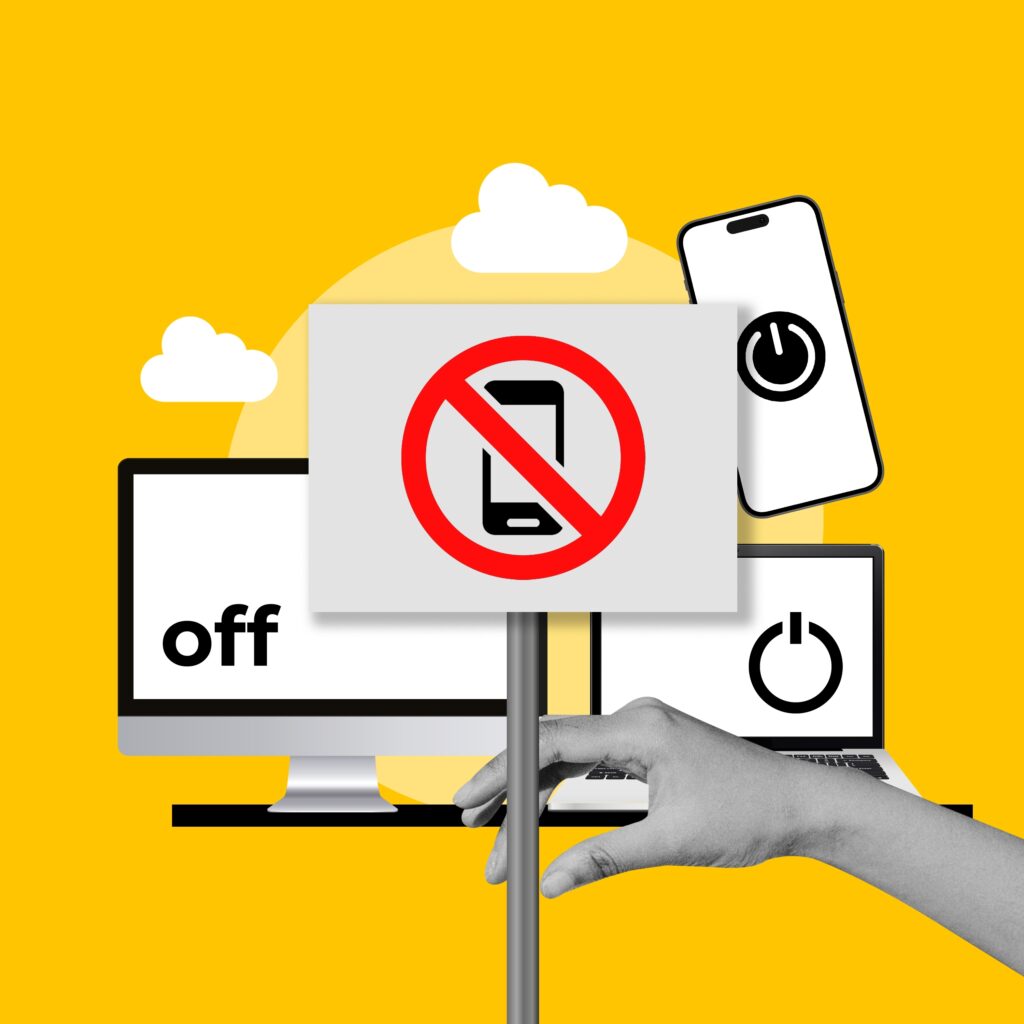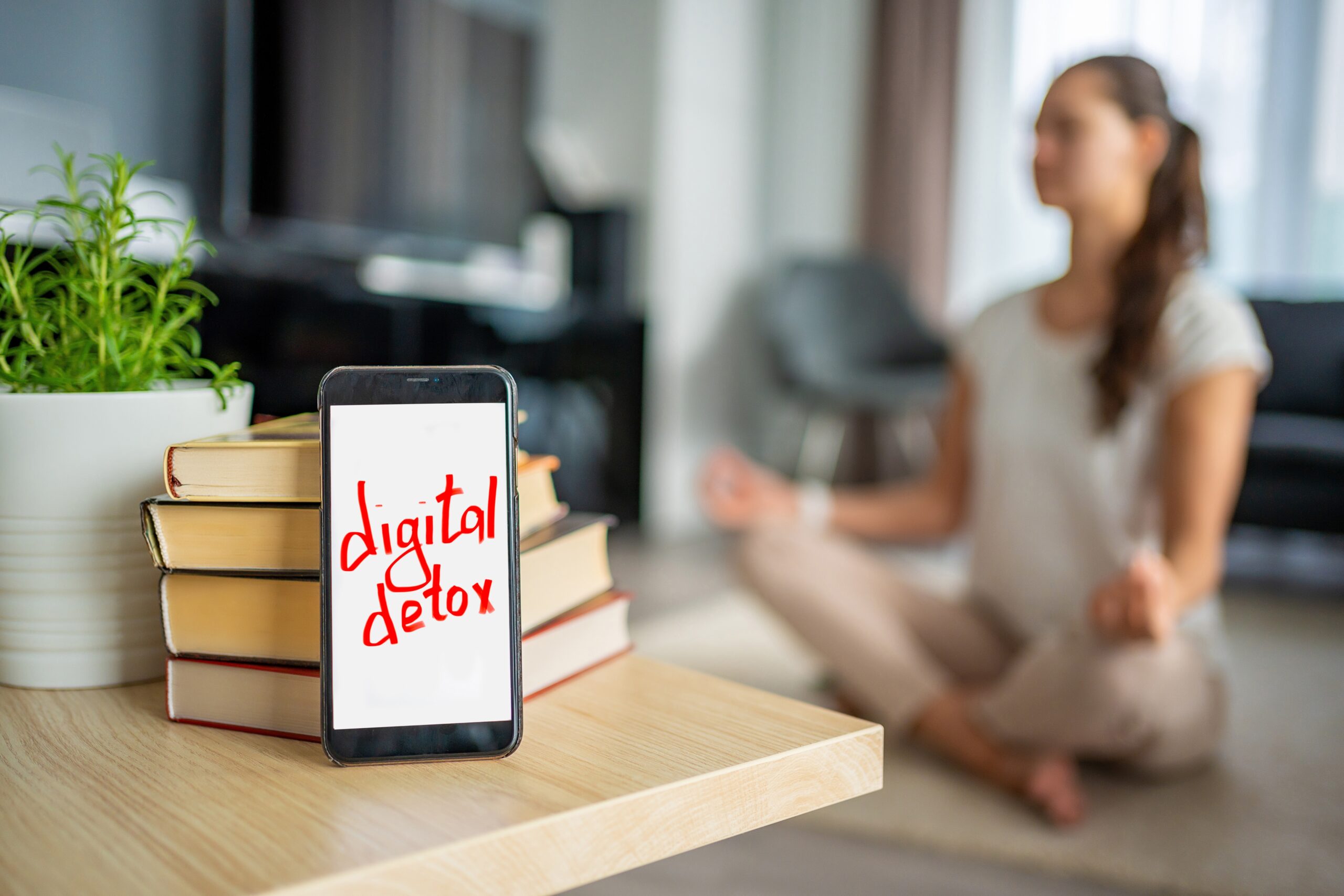From morning scrolls to late-night TikTok loops, screens have become a non-stop part of our lives. But too much time online can leave us feeling drained, distracted, anxious — even disconnected from ourselves. This guide explores how screens affect your mood, the signs you might need a break, and simple ways to start a digital detox (without going completely off-grid). Because switching off doesn’t mean missing out — it means tuning back in.
Outline
- What Is a Digital Detox, Really?
- How Screen Time Affects Your Mood
- Signs You Might Need a Digital Detox
- The Science: Why Screens Mess With Your Brain
- 7 Simple Ways to Start Your Digital Detox
- How to Set Healthy Screen Boundaries (That Actually Stick)
- Final Thoughts: Disconnect to Reconnect
What Is a Digital Detox, Really?
A digital detox isn’t about throwing your phone into the sea (tempting as that may sound). It simply means:
- Taking a conscious break from screens or certain apps
- Reducing mindless scrolling and overstimulation
- Reconnecting with offline life and your own headspace
💡 It’s less about deprivation — more about intention. You decide what, how long, and why.
How Screen Time Affects Your Mood
Too much screen time, especially on social media, can have a subtle (but serious) effect on how you feel:
| Too Much Screen Time Can Lead To… | Why It Happens |
|---|---|
| Low mood or irritability | Constant comparison, negative content loops |
| Anxiety or overwhelm | News overload, notifications, decision fatigue |
| Poor sleep | Blue light messes with your melatonin |
| Low motivation or brain fog | Dopamine overload reduces real-life focus |
| Disconnection from yourself and others | Digital noise replaces real connection |
We’ve all come off a scrolling session feeling worse, not better. That’s your cue to pause.
Signs You Might Need a Digital Detox
It might be time to switch off for a bit if:
- You check your phone first thing — and feel worse
- You can’t remember the last time you went an hour without it
- You feel anxious when your phone isn’t nearby
- You find yourself comparing your life to others online
- You scroll to “relax” but end up overstimulated or emotionally drained
- You’re sleeping poorly or feel mentally cluttered
If your phone feels more like a pressure than a tool — it’s time to reclaim your space.
The Science: Why Screens Mess With Your Brain
Screens hijack your brain’s dopamine system — the reward centre that makes things feel good. But too much stimulation (notifications, likes, endless content) can:
- Leave you constantly craving distraction
- Make it harder to focus on slower, real-life tasks
- Increase stress hormones like cortisol
- Disrupt your circadian rhythm (your body’s natural sleep-wake cycle)
Your brain isn’t broken — it’s just not built for 24/7 digital life.
7 Simple Ways to Start Your Digital Detox
You don’t have to go cold turkey. Try one or two of these small steps:
1. Tech-Free Mornings or Evenings
Start or end your day without your phone — even 30 minutes makes a difference.
2. Delete One App Temporarily
Is Instagram stealing your peace? Remove it for the weekend and see how you feel.
3. Use “Do Not Disturb” Mode
Limit constant interruptions — your brain needs quiet time.
4. Move Your Apps Around
Make your go-to apps less accessible — a little friction reduces impulse checks.
5. Replace Screen Time with Real-Time
Swap 15 mins of scrolling with:
- A walk
- A book
- A journal session
- A call with a friend
6. Use a Screen Time Tracker
Apps like Moment or Digital Wellbeing show where your time goes — often eye-opening!
7. Create No-Screen Zones
No phones at the table, in bed, or during conversations. Build connection, not distraction.
⏳ Even short breaks help reset your brain and improve your mood.

How to Set Healthy Screen Boundaries (That Actually Stick)
Boundaries don’t have to be strict — they just have to work for you.
Start with:
- Time limits for social apps
- A “no phones after 9pm” rule
- Having tech-free meals with family or friends
- Putting your phone in another room while you work or relax
- Turning off non-essential notifications
The goal isn’t perfection — it’s awareness + choice.
Final Thoughts: Disconnect to Reconnect
Screens aren’t the enemy — they connect us, entertain us, help us work and create. But when they start to consume us, that’s when we need a reset.
🌿 Taking a digital detox is about tuning back into real life — your thoughts, your body, your people, your peace.
So log off when you need to. Your mind will thank you for it.








